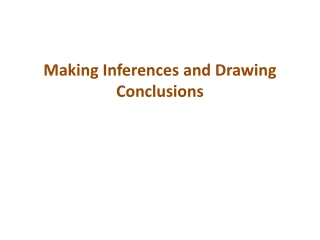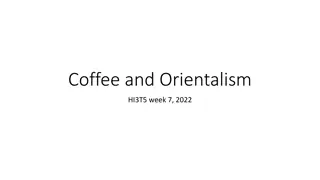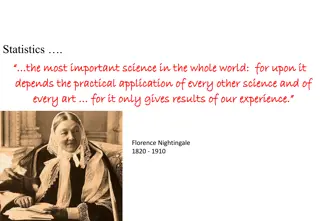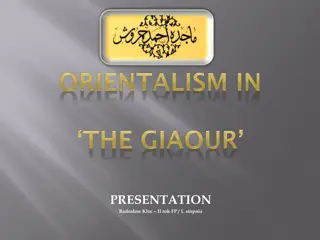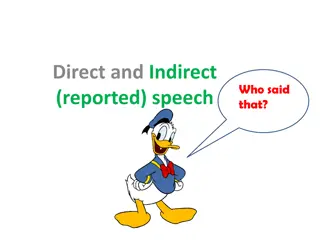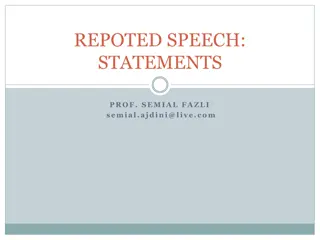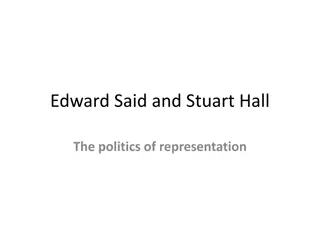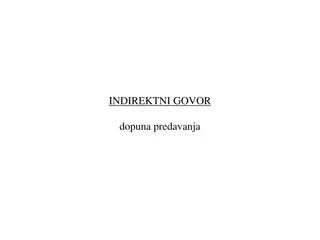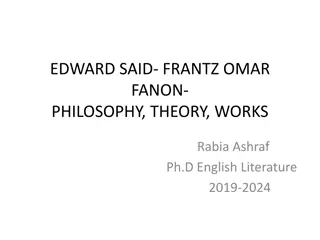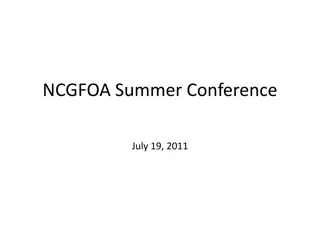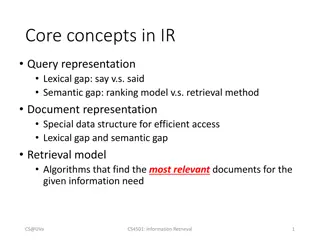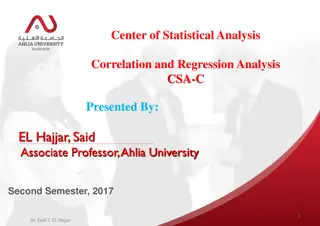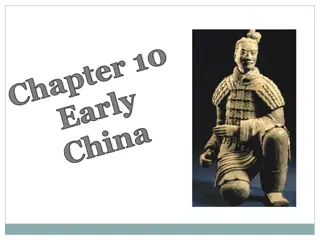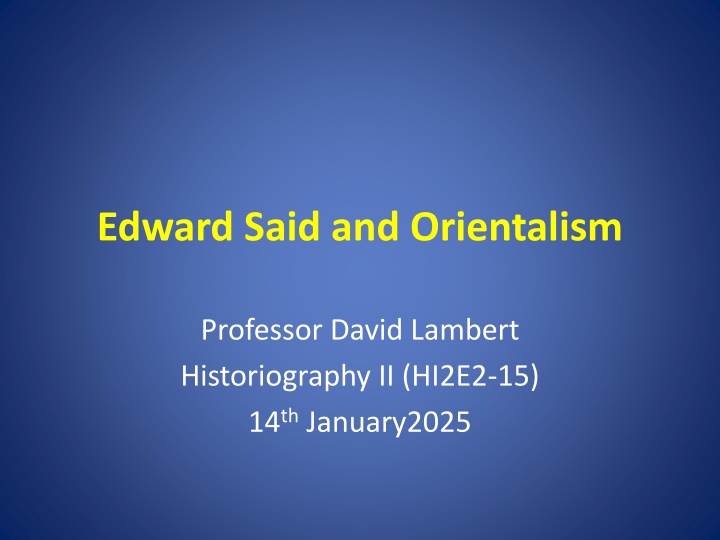
Postcolonial Perspectives: Edward Said and Orientalism in Historiography
Explore the impact and criticism of Edward Said's Orientalism in the context of postcolonial theory and historiography. Discover how anti-colonial precursors paved the way for postcolonial perspectives that challenge traditional narratives of history. Delve into the defining aspects of postcolonialism and the shift towards cultural history from the social lens after World War II.
Download Presentation

Please find below an Image/Link to download the presentation.
The content on the website is provided AS IS for your information and personal use only. It may not be sold, licensed, or shared on other websites without obtaining consent from the author. If you encounter any issues during the download, it is possible that the publisher has removed the file from their server.
You are allowed to download the files provided on this website for personal or commercial use, subject to the condition that they are used lawfully. All files are the property of their respective owners.
The content on the website is provided AS IS for your information and personal use only. It may not be sold, licensed, or shared on other websites without obtaining consent from the author.
E N D
Presentation Transcript
Edward Said and Orientalism Professor David Lambert Historiography II (HI2E2-15) 14thJanuary2025
Edward Said, Orientalism (1978) Edward Said (1935-2003)
Lecture structure 1. Contexts History-writing after the Second World War Anti-colonial precursors to postcolonialism 2. Said s Orientalism Defining Orientalism 3. Sources of Said s theory 4. Impact, criticism and overview
Contexts I: History-writing after the Second World War Broad direction of travel was leftward and critical (esp. from 1960s): More theoretically self-conscious Rise of history from below From 1970s, a shift from social to cultural history
Contexts II: Anti-colonial precursors to postcolonialism Orientalism is a founding text of postcolonial theory Anti-colonial precursors: Economic critiques of colonial rule Marxist anti-imperialism Francophone anti-colonial writers Hopes for decolonization in 1950s and 1960s Optimism difficult to sustain by end of 1970s Postcolonial theory partly a response to this
Defining postcolonialism Historiographically, the postcolonial perspective has sought to deconstruct the grand narratives of imperial and national histories deriving often from an Enlightenment vision of a progressive history, in order to reveal or point to suppressed, defeated, or negated histories and stories (Duara, 2002, p. 417).
Contexts II: Anti-colonial precursors to postcolonialism Orientalism is a founding text of postcolonial theory Anti-colonial precursors: Economic critiques of colonial rule Marxist anti-imperialism Francophone anti-colonial writers Hopes for decolonization in 1950s and 1960s Optimism difficult to sustain by end of 1970s Postcolonial theory partly a response to this
Saids Orientalism European culture was able to manage and even produce the Orient politically, sociologically, militarily, ideologically, scientifically and imaginatively during the post- Enlightenment period (Said, 1978, p. 3).
T. E. Lawrence, aka Lawrence of Arabia (1888-1935)
Saids Orientalism Taking the late eighteenth century as a very roughly defined starting point Orientalism can be discussed and analyzed as the corporate institution for dealing with the Orient dealing with it by making statements about it, authorizing views of it, describing it, by teaching it, settling it, ruling over it: in short, Orientalism as Western style for dominating restructuring, and having authority over the Orient (Said, 1978, p. 237).
Saids Orientalism The Arabian traveller is quite different from ourselves. The labour of moving from place to place is a mere nuisance to him, he has no enjoyment in effort [as we do], and grumbles at hunger or fatigue with all his might [as we do not]. You will never persuade the Oriental that, when you get off your camel, you can have any other wish that immediately to squat on a rug and take your rest (isterih), smoking and drinking. Moreover the Arab is little impressed by scenery [but we are] (Smith, 1912 quoted in Said, 1978, p. 237).
Meanings of Orientalism Said uses the term in three ways: 1. An academic and intellectual tradition of knowledge production by Western scholars about the Orient
French expedition to Egypt and Syria (1798-1801)
Meanings of Orientalism Said uses the term in three ways: 1. An academic and intellectual tradition of knowledge production by Western scholars about the Orient 2. A characteristic way of thinking about the world in terms of a binary division between West and East 3. A major form through which Western power was (and is) exercised over the non-Western world
Sources of Saids theory Antonio Gramsci and the concept of hegemony Michel Foucault, power/knowledge and the study of discourse Liberal humanism Political anger
Impact and criticism Foundational text of Postcolonial Studies Spawned extensive work on colonial discourse
Impact and criticism Foundational text of Postcolonial Studies Spawned extensive work on colonial discourse Criticisms: Defensive criticism from Orientalist scholars Right-wing Left-wing
Impact on history-writing Encouraged a textual and discursive turn in the study of imperialism and its characteristic forms of power Revealed the long-standing binary split between notions of an essential Orient and an equally essential Occident Underscored the link between Orientalist discourse and the perpetuation of Western domination over parts of the globe
Edward Said and Orientalism Professor David Lambert Historiography II (HI2E2-15) 14th January2025

